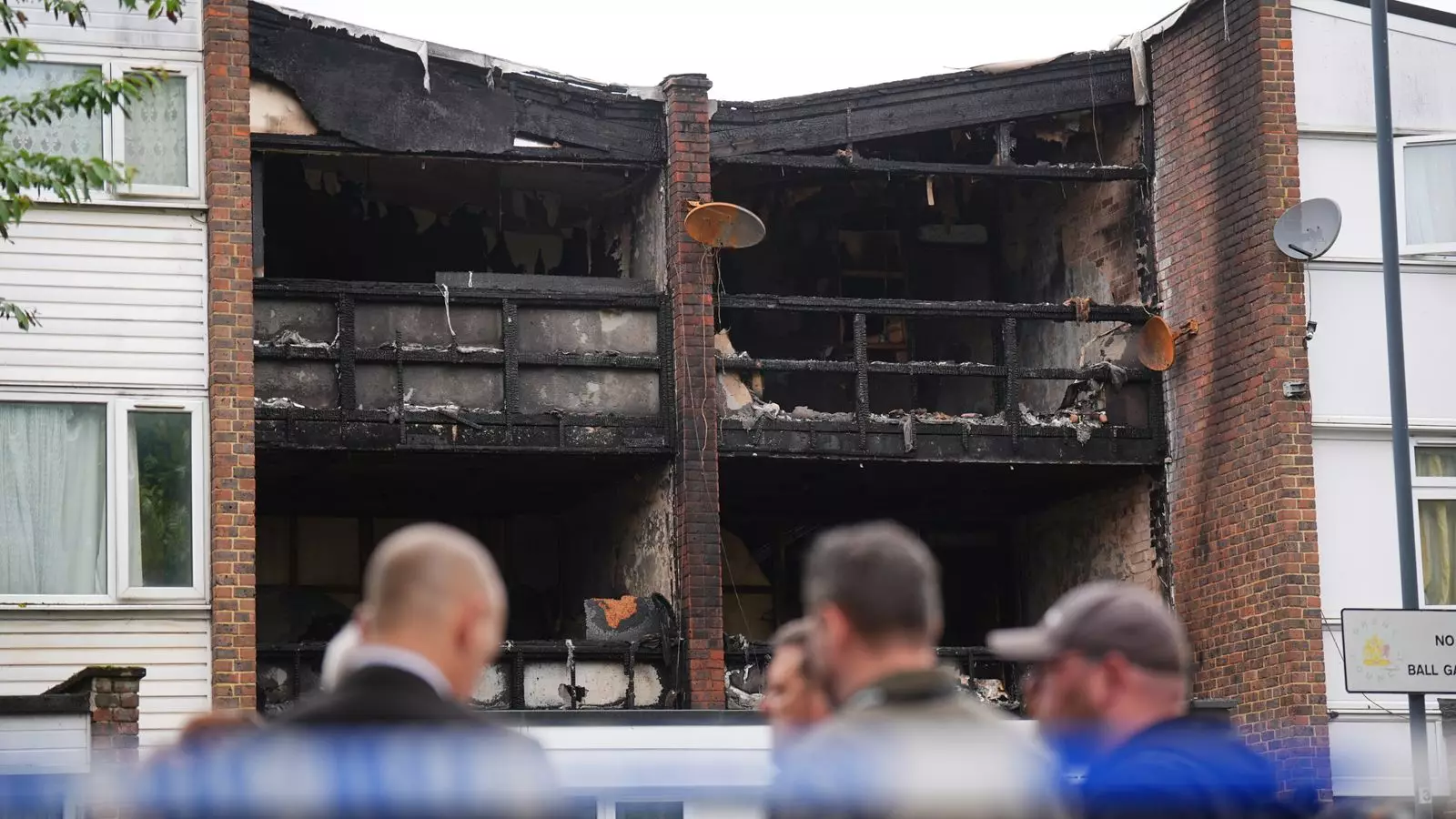In a harrowing incident that has shaken the very foundations of a close-knit community in Brent, northwest London, a house fire has claimed the lives of a mother and her three young children. The depth of tragedy resonates deeply, going beyond just the physical loss of life. This brutal event evokes not merely sympathy but a palpable sense of vulnerability felt by many, emphasizing how suddenly joy can be extinguished. What adds to the heartbreak is that the victims were members of a cohesive community known for its warmth and solidarity, highlighting stark contrasts between the comfort of daily routine and the chaos of outright horror.
The facts surrounding this fire are chilling. On that fateful night, emergency services responded swiftly, attempting to rescue those trapped within the flames. Despite their courage and determination, they could only save so many. The heartrending stories of neighbors, recalling their incredulity and despair, paint a picture of a community thrown into turmoil. One witness described the family as “very good people,” further reinforcing the tragic nature of this event—they weren’t just victims; they were, and will always be, cherished members of their neighborhood.
Systemic Failures and Oversight
The question everyone is asking is, how could something so catastrophic happen on a seemingly ordinary night? While the police are diligently investigating, and a suspect is in custody, we cannot overlook a crucial aspect: the broader systemic failures that often lead to such tragedies. Fires do not occur in a vacuum; they are often intertwined with issues like inadequate safety regulations, lack of preventive measures, or delayed emergency responses.
Every house in a community should be a sanctuary, a space free from fear and danger. Yet, there exists an underlying current of negligence that fails to prioritize the safety of families, especially in areas already grappling with socioeconomic strife. Living in fear of one’s safety at home is an unparalleled horror that no family should ever endure. This tragedy must serve as a wake-up call for local governments and regulatory bodies to review fire safety protocols and better educate communities about risks and prevention strategies.
Unity in Grief
But amid this sorrow, an unexpected sense of unity emerges. Heartrending tributes to the victims reveal a community galvanized by grief, determined to ensure that the memories of those lost are not forgotten. Neighbors are coming together, sharing stories and supporting one another, despite the darkness that has descended. Their bonds are being fortified, echoing a truth that community solidarity can thrive even in the wake of tragedy. This tragic event has ignited discussions about the importance of community vigilance, accountability, and resilience.
The sudden loss of lives has whipped up an emotional storm, reminding us all of our humanity in a time where such feelings may have been dulled by daily mundanity. It compels people from various backgrounds to reevaluate their own lives and communities, fostering compassion and awareness that extend beyond mere sympathy to actionable allyship. In an interconnected world, it is crucial to foster safe environments where families can thrive without the shadow of danger looming over them.
The Role of Leadership
In moments like these, leadership becomes crucial. Elected officials, such as Mayor Sadiq Khan and local MP Dawn Butler, must step beyond expressing condolences; they must take active roles to address not only this tragedy but also the underlying issues that contribute to such disasters. Their positions grant them a platform and responsibility to advocate for necessary changes in regulations and community resources.
Furthermore, it is vital for the public to hold authorities accountable for safety measures and fire prevention strategies. We have to demand that our homes are adequately protected and that every family in London can enjoy their right to safety without the looming fear of loss. This tragedy should not be the end of the story but rather a necessary catalyst for change.
The loss of three children and a beloved mother demands more than just our heartfelt prayers; it demands a commitment to action. We owe it to the victims, their families, and our communities to ensure no one else must endure such catastrophic loss due to systemic failures in safety and oversight. Our collective grief must morph into a transformative force capable of producing real change and accountability.

